Citric acid and histamine intolerance
08/22/2024 Food Intolerances
Look at online nutritional recommendations about histamine intolerance and almost every website or journal will have citric acid on a list of prohibited substances. The reasons for why it is not tolerated vary greatly, but common to all these sources of information is the lack of clarity over where this assertion about citric acid comes from. Since citric acid is used so commonly in our everyday lives, it’s worth taking a closer look at the current state of research.
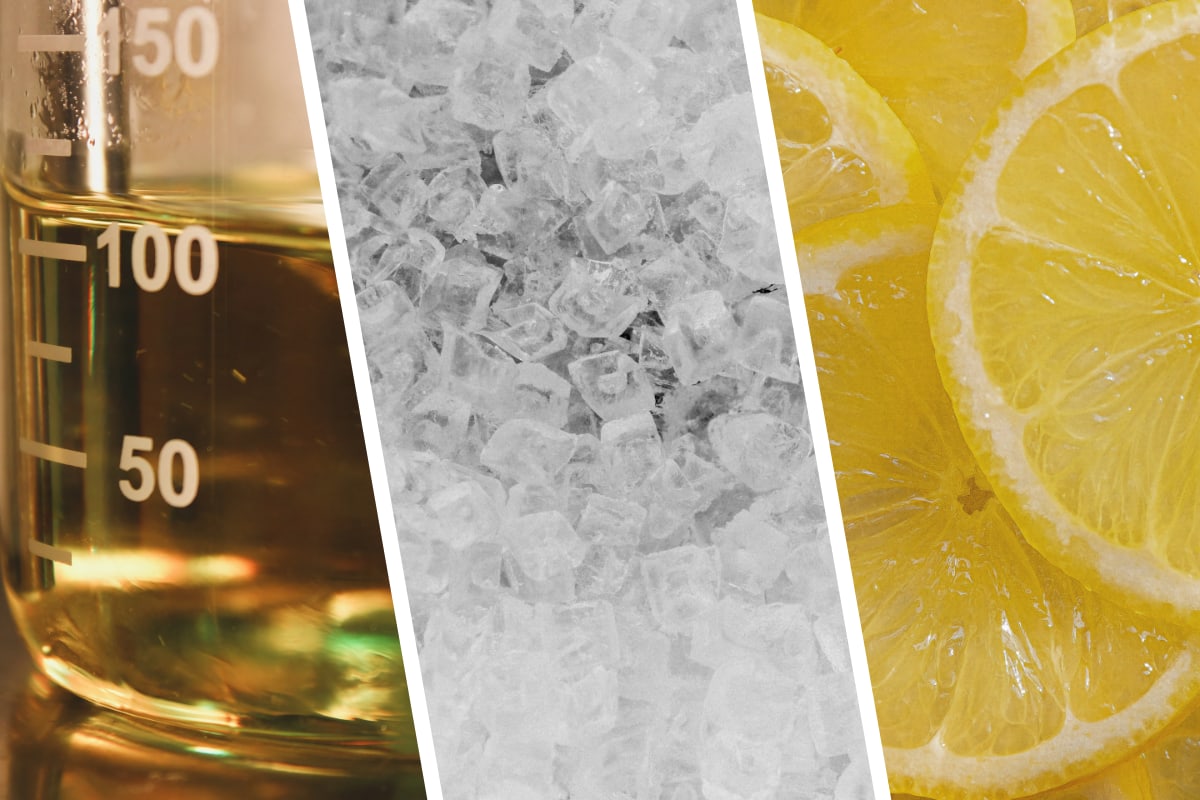
Read More...

Read More...
Oxalic acid and oxalates for Android
07/29/2024 Food Intolerances
A low-oxalate diet is a topic of interest for many of our users. People are generally familiar with oxalates as being the substance that makes up most kidney stones, but they can also cause problems for sufferers of food intolerances.
This information has been available for iPhone on our app for some time, and we are now finally able to provide it for Android too. The update can be downloaded free of charge for all users that have purchased the app. Let’s take a closer look at what new information you can find.
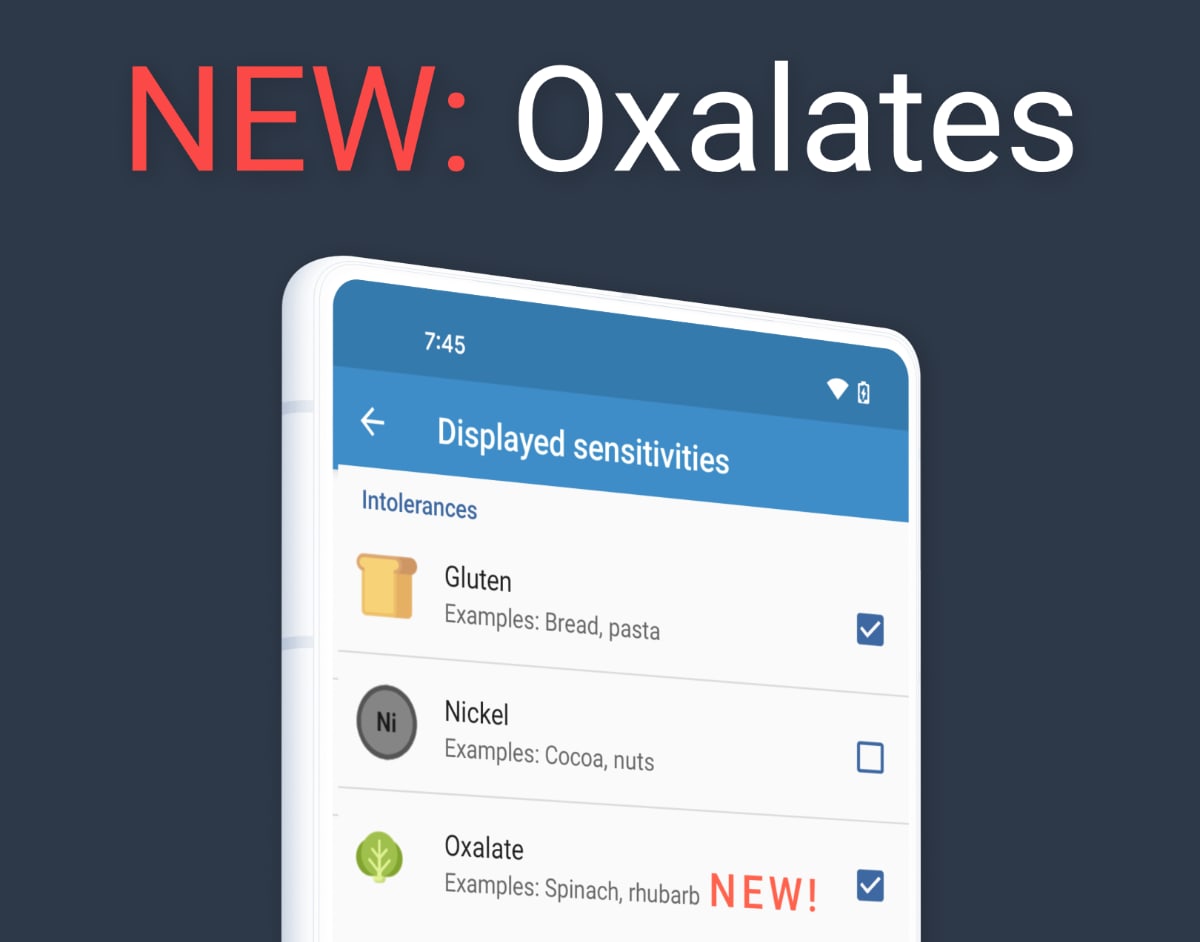
Read More...
This information has been available for iPhone on our app for some time, and we are now finally able to provide it for Android too. The update can be downloaded free of charge for all users that have purchased the app. Let’s take a closer look at what new information you can find.

Read More...
Rhubarb and oxalic acid: is there cause for concern?
05/15/2024 OxiPur
From April until the end of June, supermarkets everywhere will be stocking rhubarb in their produce section. Due to its sweet yet sour taste, it is ideal for compotes, jams and cakes. However, rhubarb also contains an extremely high amount of oxalic acid, a compound that is unhealthy in high amounts and which can cause kidney stones. In this article we look at just how high the oxalate content of rhubarb is and how it can be reduced through proper preparation.

Read More...

Read More...
How much added sugar is in my food?
04/30/2024 Natural food guide
Sugar is added to many foods and beverages during the manufacturing process to improve taste, texture or shelf life. This can be in the form of various types of sugar, including sucrose (table sugar), fruit sugar (fructose), glucose-fructose syrup or high-fructose corn syrup. Because sugar is so cheap, it is found in many foods where you would not expect it, such as bread or sausage. So we are constantly – consciously or unconsciously – consuming added or other easily digestible free sugars and this is not without consequences.

Read More...

Read More...
Does oxalic acid in plant milk increase the risk of kidney stones?
04/08/2024 Food Intolerances OxiPur
As recently as a few years ago, plant-based milk alternatives were considered an exotic, niche product. Today, however, they enjoy incredible popularity and are available in a multitude of varieties. These include milk from:
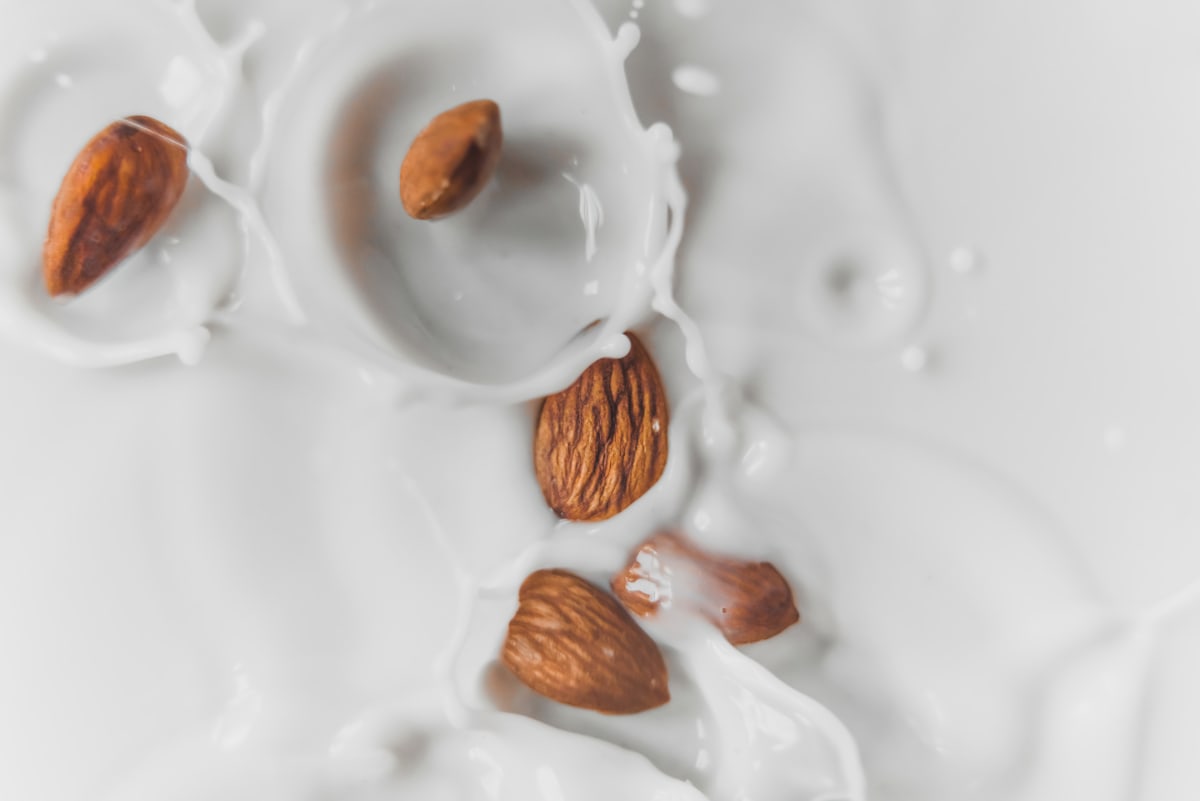
Read More...
- grains: oat, rice, spelt
- legumes: soy, pea, lupine
- nuts: almond, hazelnut, cashew, macadamia
- and other sources: coconut, hemp, quinoa

Read More...
Probiotics and food intolerances: some interesting facts
Our intestinal tract contains around 39 trillion microorganisms that help us break down indigestible food components – fiber, for example – for the body to make use of them. Most of the intestinal flora is found in the large intestine. Over time, the metabolic processes of many lactic acid bacteria and bifidobacteria have become closely interlinked with our own, resulting in a symbiosis that benefits both the bacteria and the host. The bacteria get nutrients and a fertile place to multiply and in return form vitamins and short-chain fatty acids that are essential for many bodily functions.
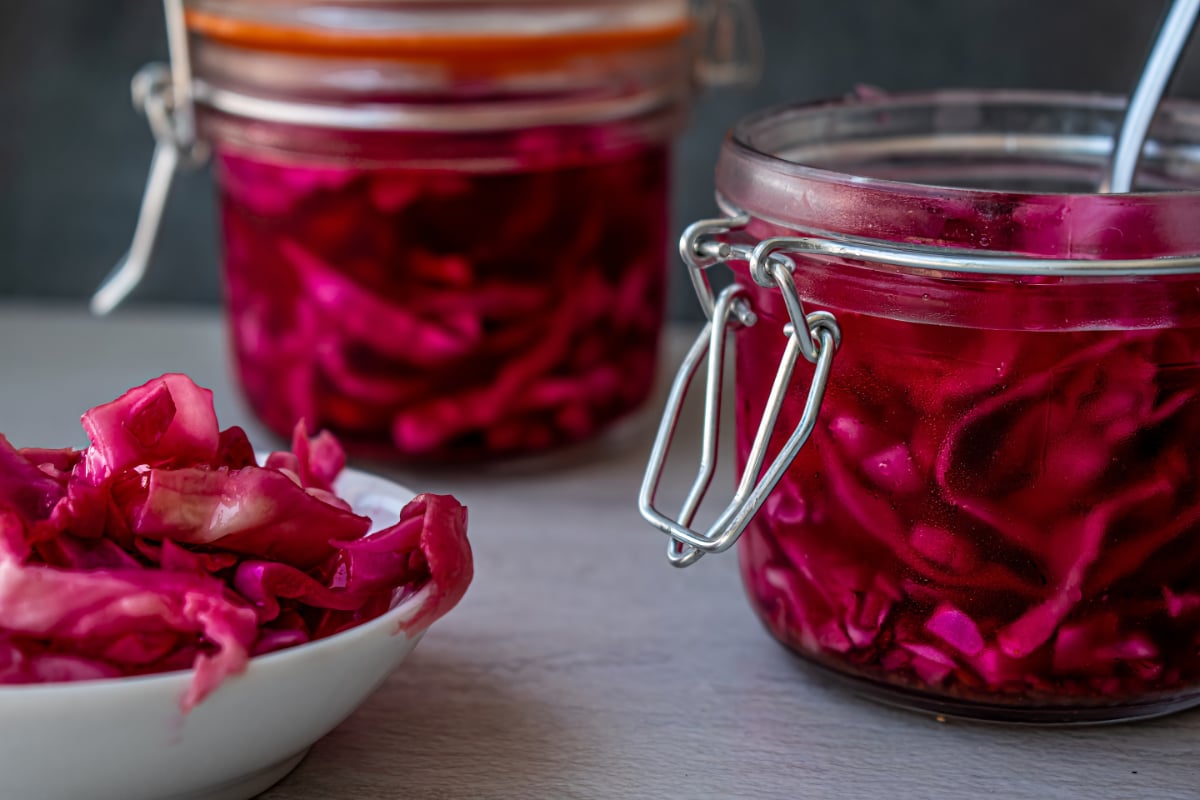
Read More...

Read More...
You’re histamine intolerant. Which beers can you drink?
02/29/2024 Food Intolerances
It’s the amber nectar, the answer to the question you can’t remember, and, to quote Homer Simpson, “the cause of and solution to all of life’s problems”. Beer is a beverage enjoyed by millions, but delicious though it may be to many, it can wreak bodily havoc in people with histamine intolerance. Indeed, those who suffer often have very poor tolerance to beer, yet some consume it nonetheless. Here we take a closer look at what beer-drinkers with histamine intolerance need to consider.
 Read More...
Read More...
 Read More...
Read More...Enjoying Christmas with a histamine intolerance
12/05/2023 Food Intolerances
The Christmas season is fast approaching and while normally a cause for celebration, it also signals a period of worry for people with histamine intolerance, as they consider the potential side effects of the now-traditional culinary indulgence over the holidays. In this article we will look at what you can do to minimize your seasonal digestive discomfort.

Read More...

Read More...
Probiotics for histamine intolerance
09/11/2023 Food Intolerances
The question of whether probiotics can help with histamine intolerance is a topic of interest for many of our users. There are supplements to be found on the market that are marketed as very effective for histamine intolerance, while others are supposedly less suitable since they contain lactic acid bacteria with the genetic ability to produce histamine. Here we take a closer look at what we know about the relationship between histamine and our intestine and consider what is still to be learned.
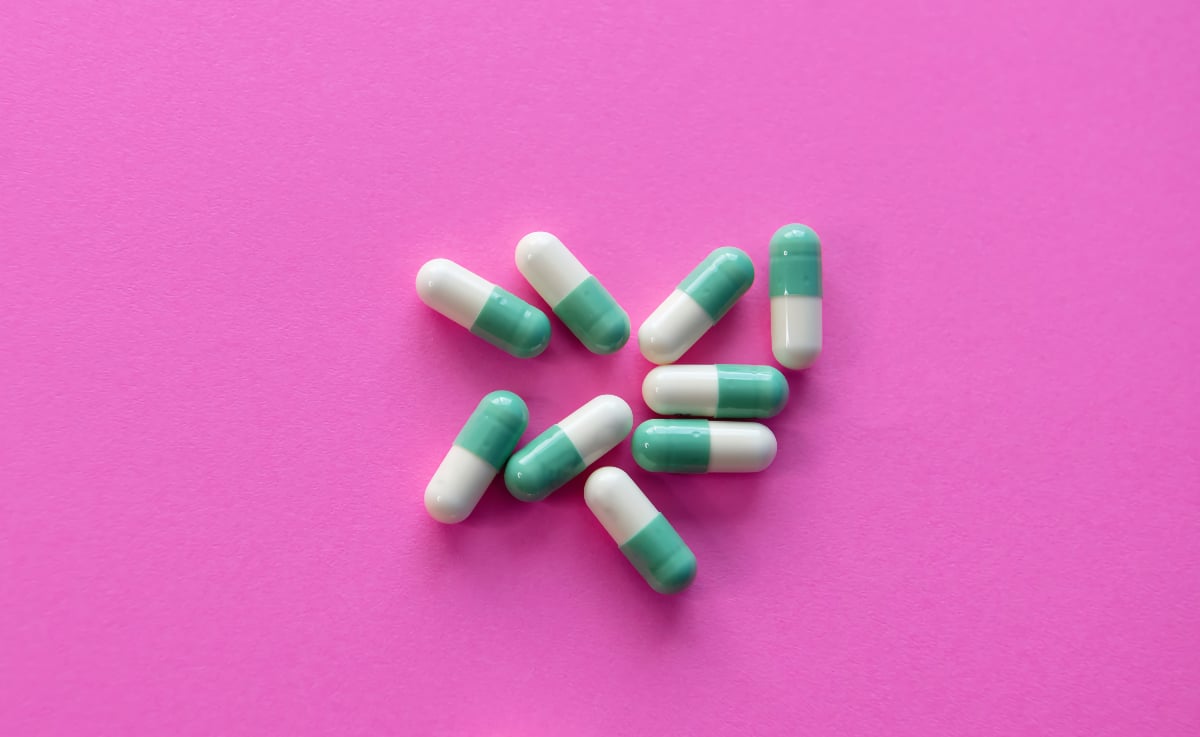
Read More...

Read More...
Can tomatoes trigger gout attacks?
10/20/2022 OxiPur
Many sufferers of gout name tomatoes as a possible cause of a gout attack, even though tomatoes contain very low levels of purine. So, if you struggle with gout, should you avoid eating them?

Read More...

Read More...
Is corn high in salicylic acid and salicylates?
07/25/2022 Food Intolerances
Our users often email us to ask why our Food Intolerances app does not flag corn products as potentially unsafe for sufferers of salicylate intolerance. In response, this article will analyze the origin and factual accuracy of the statement that corn contains a high amount of salicylate.

Read More...

Read More...
Are eggs off-limits if you suffer from histamine intolerance?
04/26/2022 Food Intolerances
If you run a quick Google search for “histamine intolerance,” you will find list after list containing foods that may be eaten and those that may not. On the unsuitable foods list is egg white, which is classified as a histamine liberator. Egg yolk, on the other hand, is on the permitted list as it is considered to be tolerable. But take a closer look and you will notice that there is never an indication of the origin of this information. So where does the statement come from that says histamine intolerance sufferers should avoid eggs?

Read More...

Read More...
Asparagus and gout – what do we know?
02/25/2022 OxiPur
Visit a supermarket around mid-April and you are likely to find asparagus on the shelves. Asparagus officinalis, to give it its scientific name, is an extremely versatile vegetable, but it is also rich in purine. Here we consider whether people that suffer from gout should avoid it.
 Read More...
Read More...
 Read More...
Read More...Turkey and gout: how much purine is in your Christmas dinner?
12/18/2021 OxiPur
It’s that time of year again. Christmas is just around the corner and thoughts will be turning to spending quality time with the family and eating and drinking to hearty excess. But what might not be on your mind is the purine content of all that goes into your body over the festive period. Luckily, our OxiPur app’s purine calculator can work this out for you. We have taken a typical Christmas dinner and estimated how much purine you are likely to consume, also including a few helpful tips on what to look out for if you suffer from gout.
 Read More...
Read More...
 Read More...
Read More...Food intolerance: The long and difficult road to diagnosis
12/01/2021 Food Intolerances
Many people believe that they suffer from food intolerance, yet it can be incredibly difficult to get a diagnosis at all. Sometimes it takes years until there is certainty. This can be a very frustrating situation, since the right dietary adjustments can improve the well-being of affected people significantly.

Read More...

Read More...
Fragrance allergy: Balsam of Peru
11/26/2021 Food Intolerances
Most people have probably never heard of the term balsam of Peru, nevertheless, it is very likely that you come into contact with it on a daily basis. Balsam of Peru is a resin that is harvested from the balsam tree that occurs in Central America. The resin contains a broad spectrum of fragrances and essential oils, which makes it a very valuable ingredient for the cosmetics industry. Virtually all products that contain fragrances may contain one or more compounds from balsam of Peru.

Read More...

Read More...
I’m lactose-intolerant. Should I use lactose-free butter?
11/25/2021 Food Intolerances
If you have recently been diagnosed with a lactose intolerance, you may be unsure of what you can and cannot eat, which might mean that you carefully avoid anything that could potentially contain lactose, including butter.

Read More...

Read More...
Does glucose increase the absorption of fructose in the intestine?
09/18/2021 Food Intolerances
“Eat some glucose with a serving of fruit and your body will better absorb the fructose contained in the food.” Such a statement can be found on many a nutrition website, along with the claim that just one glucose tablet can remedy any digestive ailment. But is this actually the case? The idea that consuming glucose can improve the absorption of fructose makes sense in theory, since it tilts the fructose-glucose ratio in favor of glucose. In practice, however, this is not borne out by the facts.

Read More...

Read More...
Grilling and Gout: Keep your purine levels low all summer long
08/18/2021 OxiPur
There are few things more pleasant than spending a summer evening enjoying a steak, chicken breast, a few beers and some good company. Grilling outdoors is one of life’s pleasures, and if you have been on a diet, the temptation to treat yourself to some hearty food and drink can be particularly strong. If you suffer from gout, however, the consequences of over-eating and drinking can be very serious indeed.

Read More...

Read More...
Coconut aminos and histamine intolerance
08/03/2021 Food Intolerances
Soy sauce is a versatile seasoning sauce that can make many dishes taste that little bit better by giving them an extra flavor. However, it is high in histamine and glutamate and based on soy. Consumers with an intolerance to these substances require an alternative, which is where coconut aminos comes in. Here we examine its viability as a soy substitute.

Read More...

Read More...
What role does mast cell disorder play in Long COVID?
05/19/2021 Food Intolerances
Current reporting on COVID-19 tends to focus heavily on two areas: serious cases, where patients require intensive care treatment, and the number of deaths. Now, we are gradually seeing an increasing number of people still suffering from the associated health problems of COVID-19, however mildly, many months after becoming infected. These long-term consequences of the coronavirus are often referred to as "Long COVID" or Post-COVID Syndrome. Here we summarize the current findings surrounding Long COVID and explore the involvement of mast cells in the case of infection as well as the implications for those with a histamine intolerance.

Read More...

Read More...
Erythritol, xylitol, and stevia: an answer to fructose intolerance?
03/26/2021 Food Intolerances OxiPur
People with a fructose intolerance are often reluctant to consume foods containing sucrose, the chemical name for table sugar, since the compound consists of 50% fructose (and 50% glucose). Instead, sufferers opt for expensive sugar substitutes that are often specifically marketed as fructose-free alternatives. Here we take a closer look at three substitutes – xylitol, erythritol, and stevia – and assess their pros and cons compared to regular household sugar.

Read More...

Read More...
Are cherries really the miracle cure for gout?
03/10/2021 OxiPur
It has long been said that eating cherries has a positive effect on gout, and you can find countless online forums and blogs in which cherries are advertised as a real miracle cure against the disease. But what is the real truth?
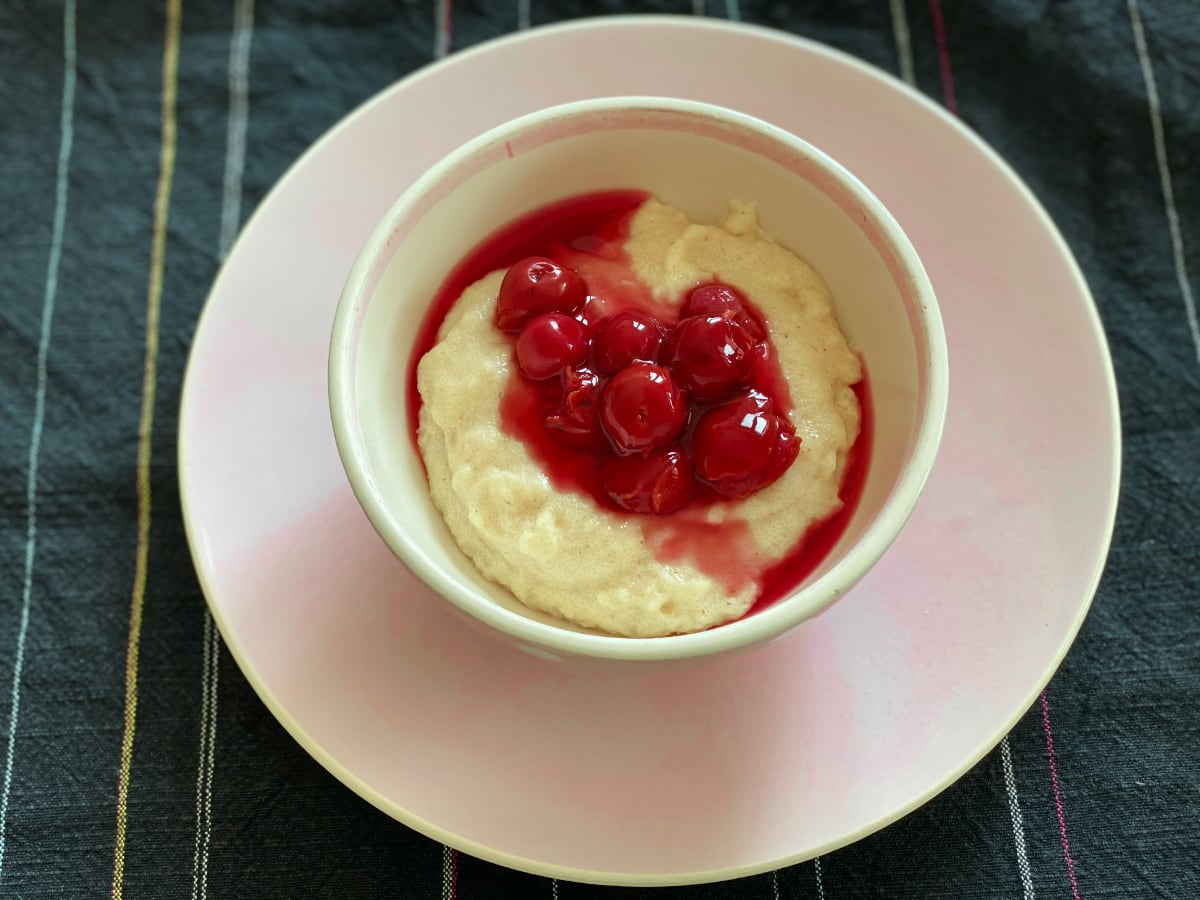
Read More...

Read More...
Nickel allergy from kitchen appliances: What you need to know
02/17/2021 Food Intolerances Natural food guide
A nickel allergy is primarily caused by objects containing nickel, such as jewelry, buttons, or doorknobs, coming into direct contact with the skin. In severe cases, however, symptoms can also develop through an excess of nickel in your diet.
Many common kitchen utensils contain nickel, and the potential danger they pose to consumers is an important question to consider, both for allergy sufferers and those without an allergy to nickel. We have analyzed the effects of three types of kitchen utensils on your exposure to nickel: cookware (pots and pans), kettles, and taps.

Read More...
Many common kitchen utensils contain nickel, and the potential danger they pose to consumers is an important question to consider, both for allergy sufferers and those without an allergy to nickel. We have analyzed the effects of three types of kitchen utensils on your exposure to nickel: cookware (pots and pans), kettles, and taps.

Read More...
Histamine intolerance and reheated dishes
02/10/2021 Food Intolerances
Fresh foods usually don't contain histamine and other biogenic amines, those are primarily formed during the microbial decomposition of certain amino acids in the food. The degree to which a meal is contaminated with histamine mainly depends on several factors.

Read More...

Read More...
How the low FODMAP diet can be used to manage IBS
09/03/2020 Food Intolerances
More and more, the low FODMAP diet is successfully used for the treatment of irritable bowel syndrome. And with the proper guidance it can easily be adopted: By avoiding certain carbohydrates that cause problems when eaten in large quantities you can significantly reduce the stress on your digestive tract. We explain the principles of this approach as well as its limits.

Read More...

Read More...
New insights about yeast and histamine intolerance
08/14/2020 Food Intolerances
Many nutrition guides label yeast as unsuitable for people with a histamine intolerance. Some claim that the yeast itself contains histamine, others say that the yeast in foods like bread or beer produces enormous amounts of histamine. In addition, yeast and yeast extract are often treated as the same thing. We take a closer look at these statements and explain what’s really going on.
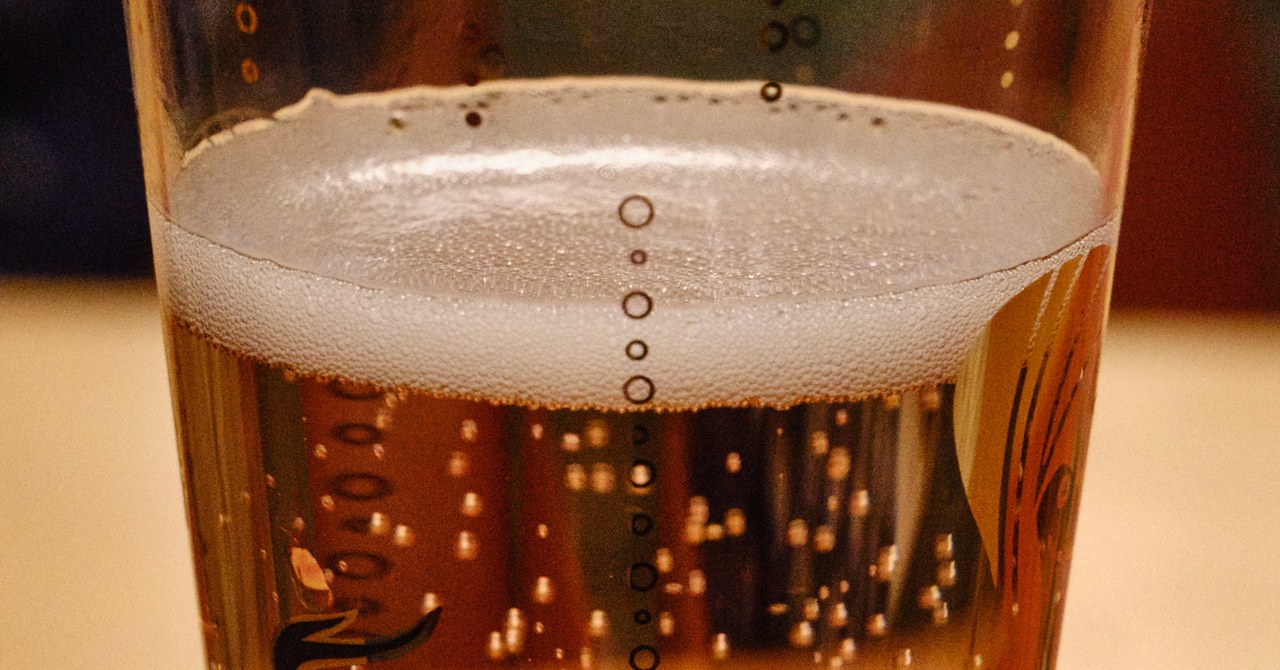
Read More...

Read More...
The corona virus and food intolerances
04/24/2020 Food Intolerances
The corona virus SARS-CoV-2 has been underestimated for a long time and has changed the world as we know it with breathtaking speed. Drastic measurements have to be taken to contain the spread of the disease. Now many of our users feel insecure and want to know whether they have to fear a more severe course of the disease.

Read More...

Read More...
Common misconceptions about sorbitol intolerance
04/15/2020 Food Intolerances
When you’re researching sorbitol intolerance online, you‘ll probably encounter a lot if unreliable information. We give you an overview about the most important facts and clear up some common misconceptions.

Read More...

Read More...
How to create recipes with our apps for iOS
We just finished our latest updates for our iOS apps Food Intolerances, Natural Food Guide and OxiPur, which give you great new features and countless improvements. You can now add foods to your list of favorites and, more importantly, enter you own recipes. This enables you to quickly assess the ingredients of your meals.

Read More...

Read More...
Glutamates: Are they really dangerous?
Every food can be turned into a tasty meal, but some seem to have an especially savory flavor that just makes your mouth water. What's their secret?

Read More...

Read More...
Food Intolerances among the Best Nutrition Apps for 2019
06/11/2019 Food Intolerances
We are really thrilled to tell you that our app Food Intolerances was selected by Healthline as one of the best nutrition apps for 2019. We are delighted to have received this award for the 4th time now and promise to continue our endeavors to be the best app for this complicated topic!

Read More...

Read More...
How can vegetarians improve their omega-3 fatty acid status?
05/04/2019 Natural food guide OxiPur
The omega-3 fatty acids eicosapentaenoic acid (EPA) and docosahexaenoic acid (DHA) almost exclusively occur in fish. This raises the question: How can vegetarians meet their needs for these essential fats? This matter is also relevant in the context of maritime overfishing, which is an environmental threat on a global scale. Farmed fish, which are raised in questionable conditions and with the massive use of pesticides and antibiotics, are not always a better alternative. Is it possible to meet one's dietary needs with plant based fatty acids?

Read More...

Read More...
Magnesium deficiency and chronic diseases
Most people probably know magnesium deficiency in connection with muscular cramps. But its potential role in the development of chronic diseases hasn't received much attention from medical researchers: It may in fact have been underestimated for a long time. In the following you will learn more about potential risk factors and how to prevent a deficiency.

Read More...

Read More...
What is the glycemic index of beer?
The glycemic index of beer is subject of a heated debate: The values you can find on various websites vary considerably. But what is the correct value? The answer is a lot more complex than you'd think.
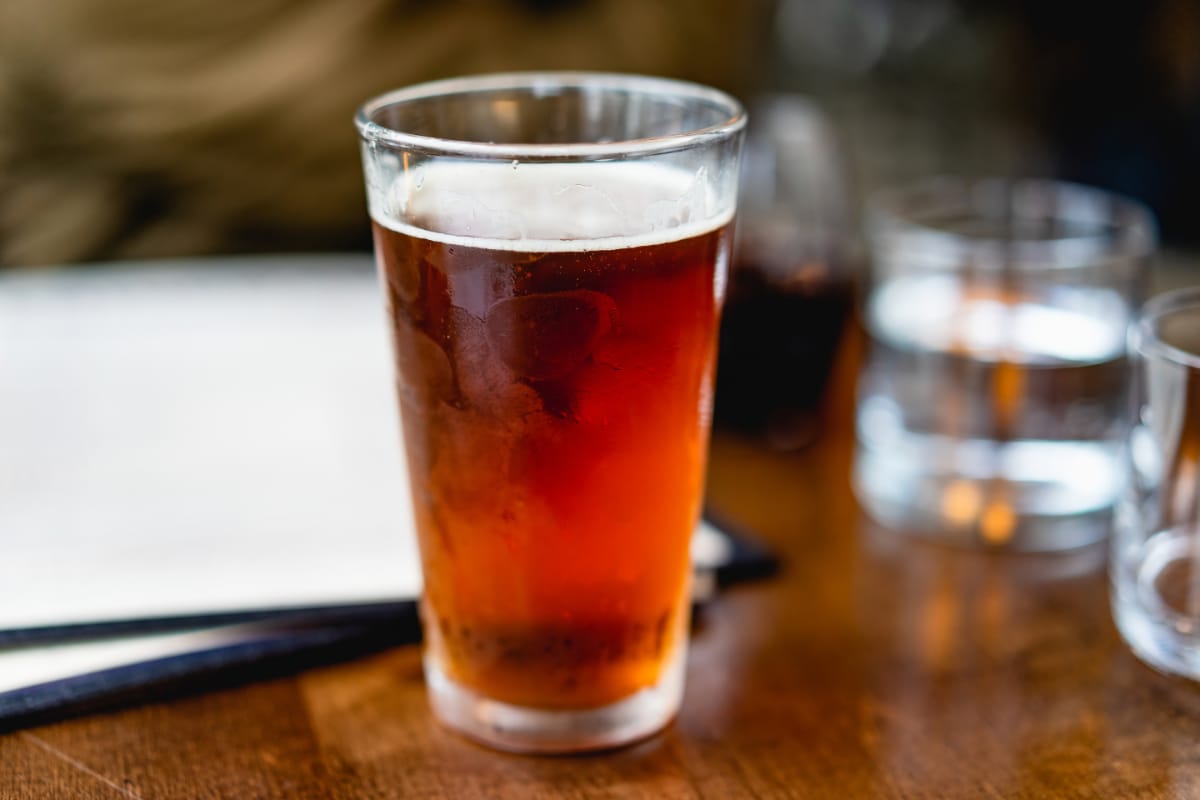
Read More...

Read More...
The role of fructose in the development of gout
07/03/2018 OxiPur
Uric acid and its salts, known as urates, are an end-product of the metabolism that is excreted with the urine. Unfortunately, urates are poorly soluble in water. In contrast to other mammals, humans don't have enzymes to convert them into more soluble compounds. Therefore, the human uric acid level is very high in comparison – it is just below the physical solubility limit.

Read More...

Read More...
Possible causes for irritable bowel syndrome
06/27/2018 Food Intolerances
Irritable bowel syndrome (IBS) is a chronic disease of the intestine that causes recurrent abdominal pain and discomfort. In the Western world 10–20 % of the population are affected. To date, the exact causes of IBS are still unclear, but it is very likely that IBS is caused by a combination of different disorders.

Read More...

Read More...
When does restricting your diet make sense?
If you suffer from food intolerances, certain constituents of the food may be responsible for a broad variety of symtoms. The obvious conclusion would be to cut all foods from the diet, that contain these constituents. However, such an avoidance strategy also carries risks.
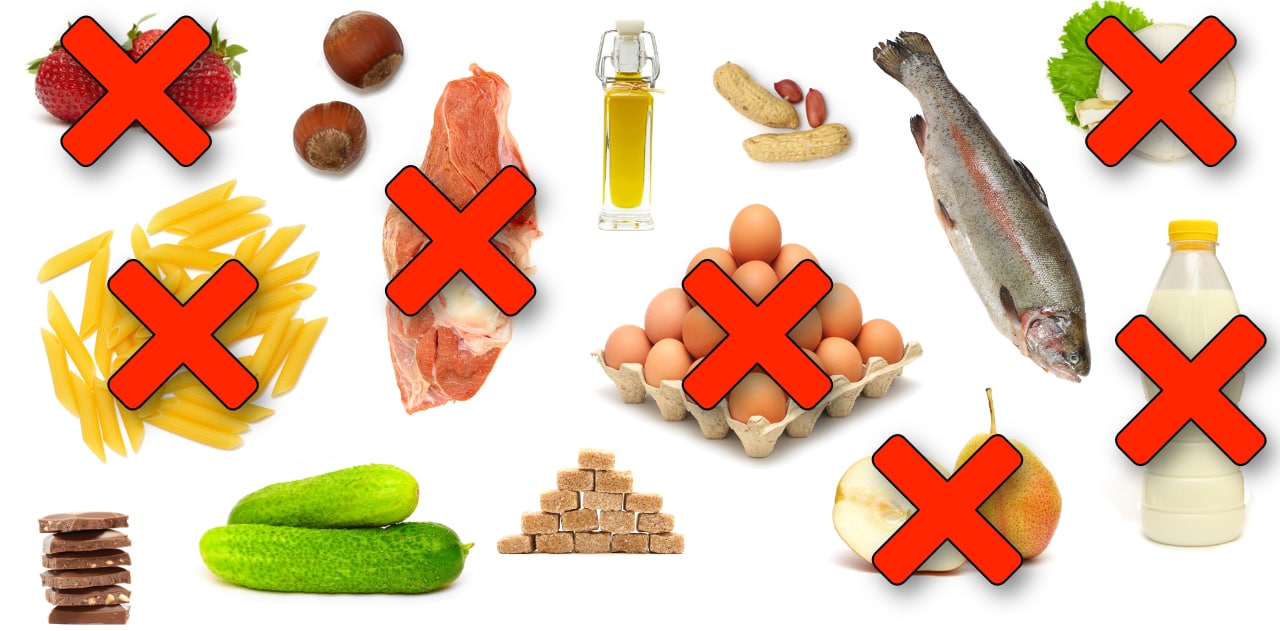
Read More...

Read More...
Are sulfites dangerous for people suffering from food sensitivities?
01/15/2018 Food Intolerances
Sulfites are used as preservatives, because they inhibit the discoloring and the spoilage of foods very effectively. They are generally regarded as safe, however, in isolated cases they may cause severe adverse reactions and several fatal incidents have been reported so far. There is a lot of confusion about potential health effects, therefore, we put together the latest information about sulfites.

Read More...

Read More...
A small sugar compendium: fructose, sorbitol and FODMAP explained
If you suffer from certain kinds of carbohydrate malabsorption you are often confronted with names of chemical compounds – it is often very easy to become confused. Therefore, we put together a small compendium that can be used, whenever needed.

Read More...

Read More...
Why is too much salt bad for our health?
04/27/2016 Natural food guide OxiPur
The excessive ingestion of salt (sodium chloride) has been known to be a risk factor in the development of high blood pressure for decades. There is compelling evidence from a multitude of studies indicating a relation of high sodium intake, high blood pressure and the occurrence of cardiovascular disease. On the other hand low salt diets exhibit a blood pressure lowering effect. What is the reason for this? Which factors cause the rise in blood pressure?

Read More...

Read More...
Do you know how much fructose you are eating?
From a historical point of view, fruits and honey were the only fructose-rich foods in our diet. In the 17th century the average sugar intake of each person was as low as 5 g per day. Big changes of dietary habits only occurred after the industrial scale production of sugar from sugar cane or sugar beets. Suddenly, sugar was available to everyone in large quantities – at low costs.

Read More...

Read More...
![[Blog]](../rw_common/images/baliza_logo_retina.png)